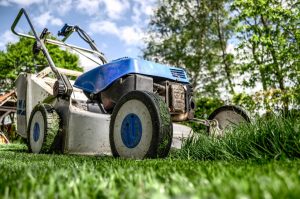If You Want Plants- Choose Them Wisely!
Take in the surrounding factors of your lawn. You should know the plant requirements for your lawn and garden.
If you know where you want to put the plants take note if the area. This is important because if the area gets a lot of sun you want a plant that strives in that. If the plant does better in shade, either find a shady spot or keep looking for another plant.
Test your soil- what nutrients do you need?
Avoid invasive plant species. Choose plants that don’t invade other plants so that your other plants will stay alive.
Make sure to find out how big the plant can get so you can avoid overcrowding.
Choose plants that resist common diseases and problems with insects.
To prevent pest problems, constantly check for pests in your yard.
If you do see pests in your yard and need to use pesticides to control them, try using the less toxic ones so that the plants are not harmed as well.
Instead of overhead watering like sprinklers and rain, conserve water by using drip irrigation. Lawns only need about 1 inch of water a week.
Water pollution can overwater your plants and lawn. By keeping stormwater runoff on your property, you can reduce this hazard. Rain gardens, barrels, and permeable pavements help keep water where it happens to fall.
Cleaning your land, like leaves and lawn clippings, reduces the chances of flooding and therefore reduces the chance of drowning your lawn and/or plants.
Water your lawn and plants early in the morning. This reduces evaporation so the greens can get the most out of the water. Having your sprinklers at a low-angle spray reduces evaporation as well.
Lawn maintenance includes using mulch to retain water, minimize the number of weeds, and reduce constant stress on the plants in your garden.

Recycling Your Yard!
This includes leaving the lawn clippings on the yard, but not the driveway. Valuable nutrients are found in them and keep your yard healthy! Also, compost yard and organic waste from your home. This creates your own natural fertilizer and mulch.
If you would like to reduce the size of your yard, replace the grass with beds of shrubs, bushes, or flowers.
Pulling weeds out by hand is safer and more effective than using chemicals. Sometimes harmful chemicals can ruin grass or even your plants. Not to mention chemicals are dangerous to yourself!
